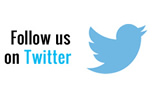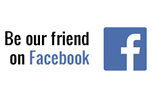Need help to feed your newborn?Wednesday, 23 April 2014 | Mummy and Little Me Feeding How you feed your baby is a very personal choice. Before your baby is born you are encouraged to gather as much information as you can to enable you with this choice. Breastfeeding � Position and attachment. Being positioned at the breast correctly enables an effective latch. A poorly latched baby will not get a full feed. This in turn will affect your milk supply and make you sore. Always ask a health professional to check the latch of your baby for the first few feeds. � Feed or offer your baby a feed regularly especially in the early days, roughly about every 3-4 hours, earlier if they demand. This will ensure that your milk supply is stimulated and establishes quickly. As general rule a baby will feed a minimum of 8-12 times in a 24 hour period although in the first 24 hours they may feed less fre-quently than this, although it is still important to offer them a feed. If they don�t want to feed, enjoy some skin-to-skin. � Offer both breasts at each feed. The baby may not take milk from both breasts at each feed. That is ok, however, if they do, it is providing extra stimulation helping to get your milk supply established quickly. Breast-feeding can be quite challenging for some mums but be patient and get some help if you are struggling. Bottle-feeding � The first stage milks are more suited to the needs of a growing baby and should be the only type of formula that they need until they are a year old. � The second stage milks should be avoided unless recommended by your GP or health visitor.
This advice can be time consuming especially at night and can be difficult to do if you�re away from home. There are how ever safe ways to get around these issues. You could: |
| |||||||
| CHANGING BAGS | ||
| BABY ESSENTIALS | ||
| MATERNITY WEAR | ||
| PREGNANCY & BIRTH | ||
| MUM & BABY GIFTS | ||
| RETREATS & PAMPERING | ||
| Customer Info | ||
Editor's picks
- Casinos Not On Gamstop
- UK Casinos Not On Gamstop
- Casinos Not On Gamstop
- Non Gamstop Casino
- Non Gamstop Casino Sites UK
- Non Gamstop Casinos
- Non Gamstop Casinos UK
- Non Gamstop Casino
- Not On Gamstop Casinos
- Non Gamstop Casinos
- Non Gamstop UK Casinos
- UK Casinos Not On Gamstop
- Best Betting Sites
- UK Online Slot Sites
- Slots Not On Gamstop
- Slots Not On Gamstop
- Non Gamstop Casinos
- UK Online Casinos Not On Gamstop
- Casino Not On Gamstop
- Betting Sites Not On Gamstop
- Best Online Casinos UK






